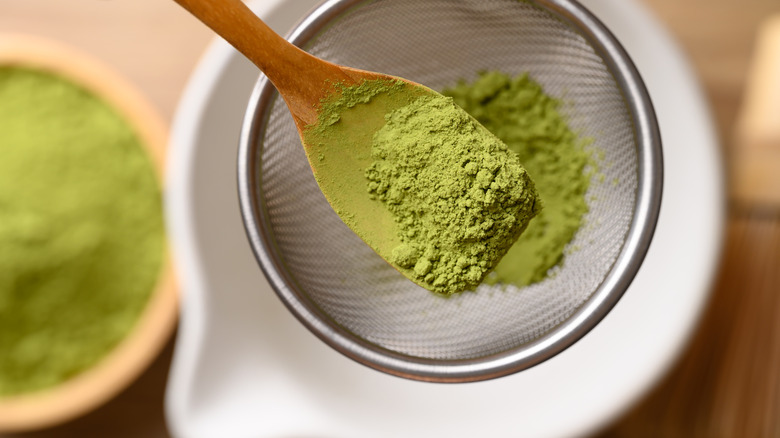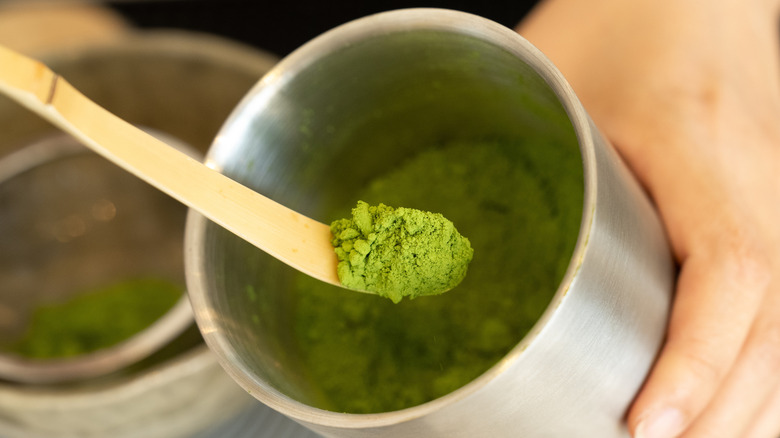Should You Really Be Storing Matcha In The Freezer?
Matcha has become hugely popular around the world in recent years — at this point, your favorite coffee shop probably has its own signature matcha drink. However, for many consumers, some aspects of this powdered green tea may remain mysterious. Unlike other teas, matcha doesn't come in bags or in loose-leaf form for steeping. It's only consumed as a powder that's whisked into water. As a result, you might guess that keeping fresh matcha in your kitchen is a bit different than storing teas for steeping.
In actuality, the ideal conditions for storing matcha and storing loose-leaf teas aren't that different, but matcha is known to have a more finite shelf life. Though it's not dangerous to consume past its expiration date, it does lose its freshness and flavor within one to two years of opening. To enjoy the powder in its prime, you're better off using it within 60 to 90 days. That's why some people may elect to store their matcha in the freezer, since it's the go-to spot for preserving food for longer periods of time.
However, when we asked matcha expert Jee Choe, coffee and tea sommelier and creator of the "Oh, How Civilized" blog, she advised, "I would only recommend storing unopened matcha in the freezer if it's for long term storage. Once the container has been opened, keep it in a cool, dry place." Unfortunately, freezing it after opening could leave a bad taste in your mouth.
The best way to store matcha
The problem is that matcha isn't entirely dry. The tea leaves that it's made from contain moisture. Even in powdered form, this moisture will crystallize when frozen, negatively affecting the taste and aroma of the matcha. According to expert Jee Choe, "Moisture can get into the matcha container from condensation if the frozen matcha is opened too early. Ideally, you want to wait for the matcha to get to room temperature before opening, but who has the patience to do that each and every time?"
Thus, the best way to store matcha once it's opened is "in an airtight, opaque container away from light, heat, and moisture to keep it as fresh as possible," Choe says. "Humidity and air exposure will degrade matcha and change the flavor. Never store matcha in a clear, glass container." If you're particularly worried about the freshness of your matcha degrading over time, another option is to buy shelf-stable tencha — the whole leaf form of matcha — and grind it into fresh matcha powder yourself using a coffee grinder. Unfortunately, this somewhat crude grinding method is unlikely to produce the high-quality, ceremonial-grade matcha that is best for sipping, so if a perfect cup of at-home matcha is what you're after, it's best to go the store-bought route and practice proper storage methods.

